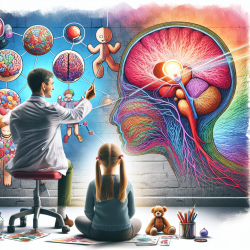As practitioners dedicated to improving outcomes for children through online therapy services, it is essential to stay informed about the latest research and its implications for clinical practice. One such study, "The Sense of Self Over Time: Assessing Diachronicity in Dissociative Identity Disorder, Psychosis and Healthy Comparison Groups," offers valuable insights into the sense of self and its continuity over time, particularly in individuals with Dissociative Identity Disorder (DID) and psychosis.
Key Findings
The study by Dorahy et al. (2021) investigates the concept of diachronicity, or the continuity of self over time, across different groups, including individuals with DID, psychosis, and healthy comparisons. Key findings include:
- Diachronic disunity is not exclusive to psychiatric groups; it is evident in all adult and child samples to varying degrees.
- DID patients in both adult and child identity states experience significant self-confusion compared to psychosis and healthy adult groups.
- Healthy adults exhibit more diachronic unity compared to children, supporting the notion that a continuous sense of self develops over time.
- Child identity states in DID patients exhibit similar diachronic disunity to healthy children, indicating a fluid sense of self.
Implications for Practice
Understanding these findings can enhance therapeutic strategies for children and adults with DID and other psychiatric conditions:
- Enhanced Assessment: Incorporate measures like the Diachronic Disunity Scale (DDS) and the Self-Concept Clarity Scale (SCCS) into assessments to better understand a patient's sense of self over time.
- Targeted Interventions: Develop interventions that focus on improving self-concept clarity and integrating disparate identity states, particularly in DID patients.
- Child-Centric Approaches: Recognize the fluid sense of self in children and child identity states, tailoring interventions to support the development of a continuous self-concept.
- Continued Research: Encourage further research to explore the impact of therapy on diachronicity and self-concept clarity, potentially leading to more effective treatments.
Encouraging Further Research
Practitioners are encouraged to delve deeper into the research to enhance their understanding and application of these concepts. Continued exploration can lead to more nuanced and effective therapeutic approaches, ultimately improving outcomes for children and adults alike.
To read the original research paper, please follow this link: The Sense of Self Over Time: Assessing Diachronicity in Dissociative Identity Disorder, Psychosis and Healthy Comparison Groups.










